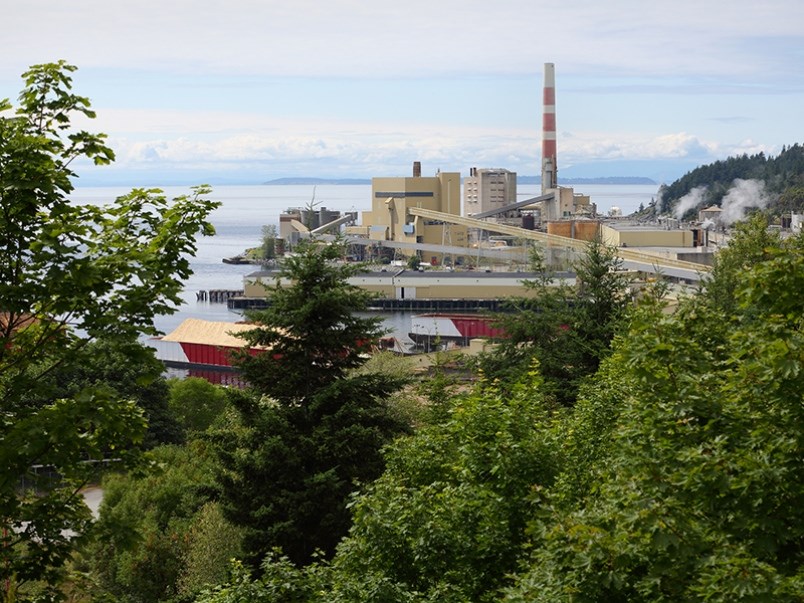Combined duties slapped on Catalyst Paper Corporation’s exports of groundwood paper by United States Department of Commerce total 20.26 per cent. The department made the announcement on Thursday, August 2.
Groundwood paper accounts for approximately 60 per cent of production at Catalyst’s Powell River mill.
“It's a major problem,” said City of Powell River mayor Dave Formosa. “They're not understating the issue. It's only Catalyst and it's all about one mill in Washington. When you get a 20 per cent increase it's devastating.”
In a statement, Catalyst called the announcement disappointing and the tariffs significant.
“While not surprised, we’re disappointed with the US Department of Commerce’s decision to keep these unwarranted duties in place, albeit at a lower rate,” said Catalyst president and chief executive officer Ned Dwyer in the statement. “These duties are punitive and without merit. The allegation that we are subsidized and engage in dumping activities is wrong and does not adhere to the facts.”
In the final counting, Catalyst’s countervailing duty rate is set at 3.38 per cent and the anti-dumping duty rate is 16.88 per cent on Canadian exports of uncoated groundwood paper.
Despite the total being below the commerce department’s preliminary determination made in January, Dwyer said the US protectionist trade attack on Catalyst affects the competitiveness of the company’s business.
“While our mills have provided newsprint to the US for more than 100 years, we’re now changing our customer base to minimize the impact of these duties because of one US mill, but this isn’t sustainable over the long term,” said Dwyer.
North Pacific Paper Company (NORPAC), located in Longview, Washington, was the only US mill to file a complaint that imports of uncoated groundwood paper from Canada have been detrimental to the US industry.
Uncoated groundwood paper is used in production of newspapers, directories, flyers, catalogues and books. It is produced at Catalyst’s three remaining mills in Powell River, Crofton and Port Alberni. The company recently sold its US assets.
The US International Trade Commission (ITC) is Catalyst’s last hope against the duties. ITC still has to affirm NORPAC’s allegations, review the commerce department’s investigation and Canada’s evidence before a final order is made, expected to be in mid-September.
“We urge the International Trade Commission to do what is right and determine that the US industry has not been injured, and overturn the Department of Commerce’s decision,” said minister of jobs, trade and technology Bruce Ralston in a statement. “Should the ITC ignore all evidence before it and find that US industry has been injured in this case, we will work with the Government of Canada to pursue all appeals.”
The continued effect of a 20.26 per cent duty, eight points below the preliminary assessment, is a growing concern for premier John Horgan’s government, which stepped in to protect Catalyst’s salaried pensioners and employees on July 27.
“BC is very frustrated and concerned about the continued effect these unwarranted punitive duties will have on BC’s forest sector and on the families in communities across BC whose livelihoods rely on it,” he said.
Catalyst employs about 400 people at its Powell River mill. The company’s value to the local economy is approximately $125 million annually, including $40 million in direct payroll, more than $5 million in taxes and another $80 million in indirect expenditures. The duties will cost the Powell River mill millions of dollars in revenue each month, according to Formosa.
After repeated efforts to persuade the Trump administration for common sense to prevail in the dispute, Ralston said there is unprecedented opposition to the paper trade war from across the US political spectrum and industry.
Ralston added that the government is engaged in ongoing discussions with local and provincial stakeholders, unions, mayors and MLAs in seeking to stabilize Catalyst’s operations.
“The trick for Catalyst is finding other markets for that paper or other products to fill that gap,” said Formosa. “It's a critical time for us.”



